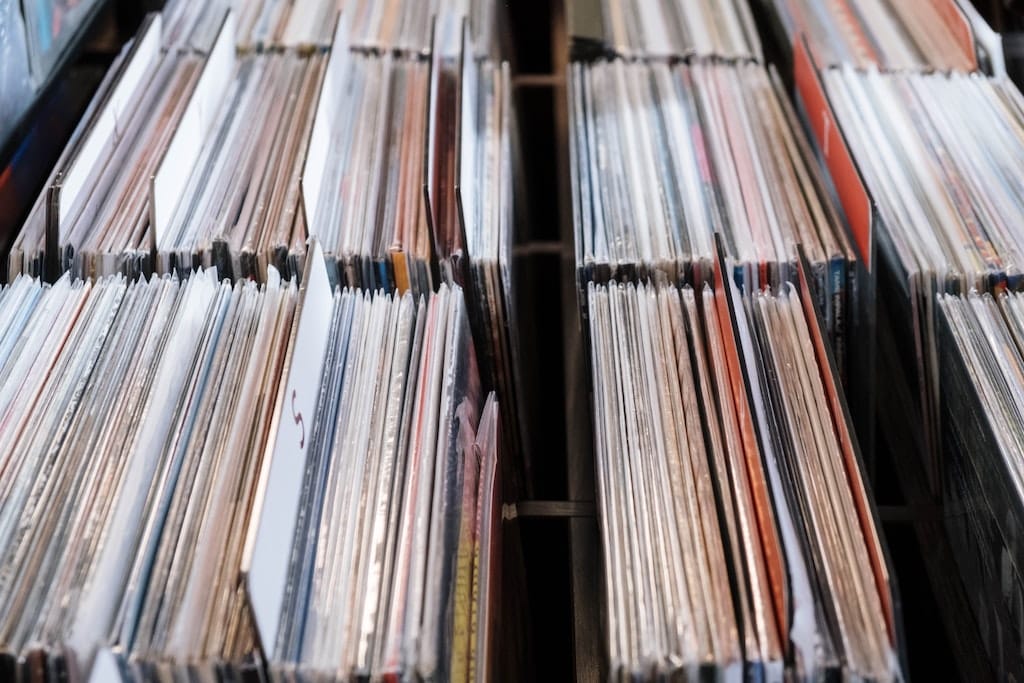I still haven’t found what I’m looking for

Somewhere in the 1980s the audio-cassette boom happened. And thanks to Magnasound, Times Music and HMV Classics, I suddenly had access to more and more classical music. My collection began to shoot up exponentially after I became an intern and had a salary (a princely Rs 1000 a month then). My first port of call after work on pay-day was the Sinari store near the Secretariat. I’d spend about a hundred or so and keep the rest for other expenses.
Add to that the music I’d tape on blank tapes after borrowing cassettes from others, and pretty soon I had cassettes stashed away on shelves, in suitcases, or just lying around. I tried to get some order in my life by sticking labels on each and numbering them; easy enough.
Then I tried to catalogue them. This was pre-internet, mind you, so it had to be done the old-fashioned way, written down in a book.
That’s where it got more complicated than a Bach fugue. The obvious option was to list composers in alphabetical order, and jot down the relevant cassette numbers. Some cassettes had more than one composer on. And what do you do if suddenly a composer pitches up and you’ve got to squeeze him (it was usually a him) between pages because you hadn’t anticipated, or perhaps even known of him?
What if I wanted to find a performer? Or a conductor, or orchestra? What about genre? Chamber music, opera, ballet, symphonies, overtures?
More frustratingly, sometimes a cassette would still be in the player, but the cover would be spirited away in a black hole somewhere in the cosmos of my living space. Or cassettes would play musical chair with covers, and I’d find Aerosmith masquerading as Albinoni.
Unsurprisingly, after a while (quite a brief while), I just gave up. I smile wryly now when I find that book, or the cassette covers with yellowed labels and numbers that are indecipherable.
The graduation to CDs and DVDs had the same inherent problems. CDs are easier to stack, but those collections have gotten even more out-of-hand. They’re increasingly being consigned to the scrap-heap of auditory history, but I can’t bring myself to toss them (or cassettes or records) to an actual scrap-heap.
This is despite all of them by now the worse for wear and age. Records have developed scratches, and ‘bump’ and skip ahead as they play. Cassettes, even in their heyday, were notorious for getting ‘stuck’, needing the good old lead pencil (its hexagonal shape engaged just so to nudge the wheels into action again) from time to time. Fungus and mould were another enemy to audio and video cassette tapes. In my experience, CDs (some, not all; but typically the ones you cherish most: Sod’s Law) too start to go berserk over time. I’ve still got cleaning fluids and all sorts of paraphernalia for the upkeep of records, cassettes and CDs but they only work up to a point in my experience.
I know people who’ve transferred all their records, cassettes and CDs into MP3 and other digital storage formats. And on the face of it, it’s quite marvelous. To see music that used to occupy a whole room, condensed into a pen-drive slightly larger than a fingernail is modern-day magic.
But there are issues. If you’re not careful, a Brahms symphony gets ripped into its movements and then sorted alphabetically. If you can live with that, fine. But it can be disconcerting.
Call me old-fashioned, but I still love to read the sleeve notes that often accompany records, cassettes, CDs and DVDs. Record sleeve-notes were my primary source of information about music, and played a big part in getting me hooked not just on music but on writing about music.
My wife Chryselle, bless her heart, perhaps to maintain her own sanity, has imposed order on not just my audio music, but on stacks of books, magazines, concert programme brochures that I’ve managed to accumulate on our travels to the world’s music capitals and elsewhere. So she becomes my best search engine. If I can’t find something, chances are that she’ll know where it is.
The internet has made so many things obsolete. Why bother to search for my own CD of Brahms’s First Symphony, Leonard Bernstein conducting the Vienna Philharmonic, for example, when all of it is just a click away, sometimes digitally remastered?
I’ve written before how internet radio has changed my life. I’m listening to BBC Radio 3 as I write this. I’m able not only able to hear whole works, but new ones, and also old ones I’d never have heard before if I confined my listening repertoire to my purchased collection. I’m able to hear live concerts, and listen to extremely enlightening podcasts on music history and so many other matters musical.
Apple Inc, the world’s largest technology company recently launched Apple Music Classical, “a brand-new standalone music streaming app designed to deliver the listening experience classical music lovers deserve.” You have to be an Apple Music subscriber, though, and I’m not; not yet. It is tempting: “Subscribers can easily find any recording in the world’s largest classical music catalog with fully optimised search; enjoy the highest audio quality available and experience many classical favourites in a whole new way with immersive Spatial Audio; browse expertly curated playlists, insightful composer biographies, and descriptions of thousands of works; and so much more.”
For classical music nerds, it is not enough to be able to listen to a recording of say a Brahms symphony, but also to a specific orchestra conducted by a specific conductor in a specific year under a specific record label, and whether it was a live performance or in a studio. So far, I’ve coasted along by either rifling through my own collection or by going to YouTube or Vimeo. But maybe this is the push I need to take a bite (or some bytes) out of Apple. It seems like the Biblical story in reverse; Apple is tempting me into the Garden of Eden, not away from it.
In the meantime, I live in hope that the Dvořák string quartet CD that I know I have (I have the CD cover, but it’s empty) but haven’t been able to find for close to a decade, will serendipitously turn up, like unexpectedly reuniting with an old friend at a street corner. That will be music to my ears.
This article first appeared in The Navhind Times, Goa, India.





